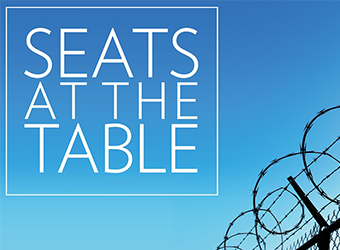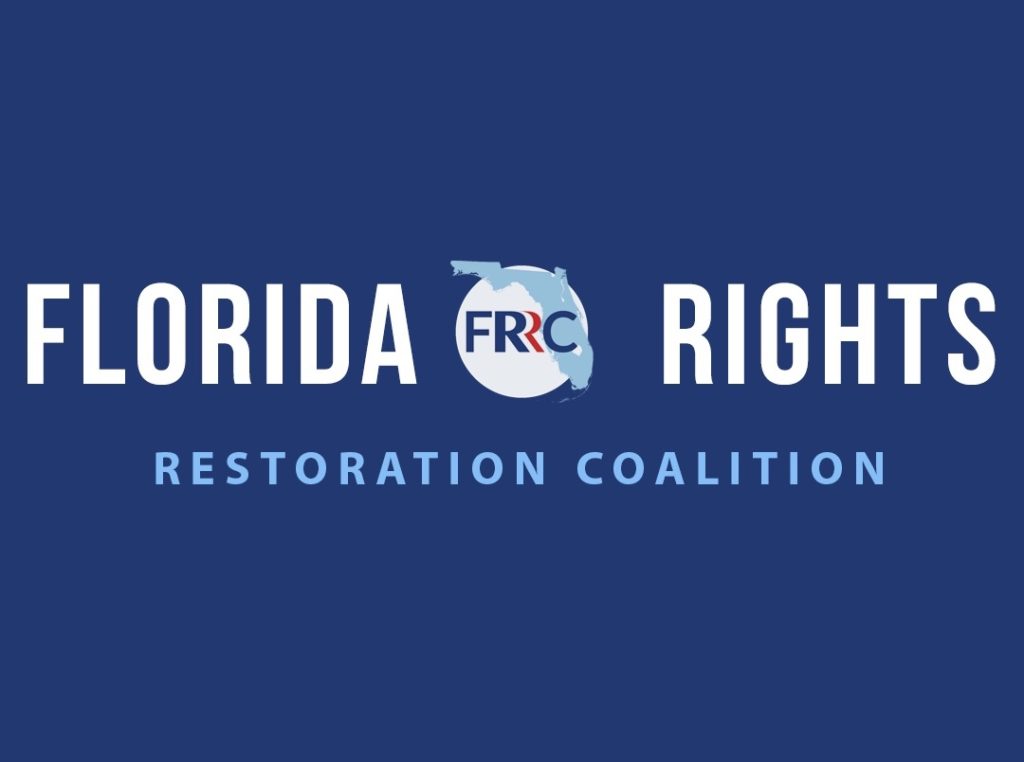- Chris Farina, Filmmaker, Seats at the Table documentary, Rosalia Films
- Neil Volz, Deputy Director, Florida Rights Restoration Coalition
- Kimberly Moore, Vice President of Workforce Innovation and TCC2WORK, Tallahassee Community College
- Samantha Carlo, Associate Professor, Miami Dade College School of Justice
FCAN host: Charleita Richardson, Executive Director
On May 23-25, FCAN and the Florida Rights Restoration Coalition hosted a free screening of Seats at the Table, a new feature-length documentary that chronicles how a group of university students connected with residents of a maximum-security juvenile correctional center through the study of Russian literature.
The screening was followed by a May 26 panel discussion featuring Chris Farina, the film’s director, and several Florida-based panelists working to engage with incarcerated individuals and build welcoming communities that can help returning citizens build lives of purpose.
“You’re benefiting the people who are incarcerated, but you’re also benefiting their families and the community that they return to,” Farina said of programs like Books Behind Bars, which is featured in Seats at the Table. “We all have a stake in that.”
Get to Know: Florida Rights Restoration Coalition
Florida Rights Restoration Coalition (FRCC) is committed to ending the disenfranchisement and discrimination against people with convictions.
The organization was instrumental in restoring voting rights to $1.5 million returning citizens with felony convictions through Amendment 4, a 2018 Florida ballot initiative that passed with 65% of voters in favor.
“What we see in terms of building a better society is that we need to reduce the barriers that exist around re-entry into the community,” said Neil Volz, FRCC’s Deputy Director.
Those barriers can also include the cost of paying for an education beyond high school. One promising change is that the FAFSA Simplification Act — which will go into effect no later than July 1, 2023 — is “sentenced blind,” meaning that all incarcerated individuals can quality for Pell Grants regardless of sentence length or conviction.
As a result, up to 463,000 people who are incarcerated throughout the nation will qualify for Pell Grants, which are usually awarded to undergraduate students who display exceptional financial need.
Supporting returning citizens in Florida
The panel discussion also featured a pair of guests who are working to help returning citizens in Florida get on the path to education and career success.
Tallahassee Community College’s TCC2WORK initiative offers more than 70 job-training programs and a variety of customized options, including training services for those on probation or enrolled in work release programs.
“When you focus on second chances, it’s not about periods and doors being closed,” said Kimberly Moore, Vice President of Workforce Innovation and TCC2Work for Tallahassee Community College. “It’s about the commas that allow a person to pause and see what’s next in their life.”
Samantha Carlo, Associate Professor at Miami Dade College’s School of Justice, shared information about MDC’s ESUBA program, which was established in 2013 as a voluntary effort to provide the college’s students with real-world work experience, while also bringing an anti-abuse curriculum to incarcerated individuals.
Since ESUBA’s inception, the program has served over 100 MDC students and 900 incarcerated students.
“We should be a society of redemption and allow people to move past their worst indiscretion,” Carlo said. “Incarceration itself does not solve the problem, so we need to introduce other interventions.”
The benefits of bringing others to ‘the table’
Farina said he hopes educators and policymakers who see his film become inspired to replicate its Books Behind Bars model so that more incarcerated individuals can benefit nationwide. The director is quick to note that both the incarcerated and university students in the film benefited from their time spent studying together.
“When you think about bringing other people to ‘the table,’ we have to remember that the people who are already sitting there will also benefit because they’ll understand the perspective of others,” Farina said.
Volz echoes that sentiment and, through his work with FRCC, is working to expand educational and career opportunities for all Floridians by removing the stigma of having a conviction.
“It’s important for us to change the narratives around how we see each other, and for all of us to just see each other as fellow human beings,” Volz said.
FCAN would like to thank the following for co-hosting this webinar:
Show Notes
To learn more about education and career opportunities for incarcerated individuals — or to view the recording and download the presentation — take advantage of these resources:
* We want to know what you think! Please take two minutes to complete this audience survey.
Be sure to visit our Past Webinars page for access to recordings and downloadable material from FCAN’s previous presentations.


